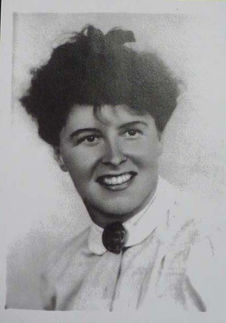I'm a paragraph. Click here to add your own text and edit me. It's easy.
I'm a paragraph. Click here to add your own text and edit me. It's easy.
I'm a paragraph. Click here to add your own text and edit me. It's easy.
Latest:

In Hiding – Poland
My mother did a dirndl for me. I looked like a German child despite the fact that I was dark. I had no documents, no papers, nothing. I decided I would take his photograph. I put the money under the photograph. I went straight in, I wanted this, this, this & this very quickly. I'd say 'I’m in a hurry.' They immediately dropped everything else. [Sometimes] I would hear comments “Look at her. She’s a German, you think she’s a Jew?” If this came, at that moment I would take this out, open up the photograph, take out the money very slowly & they could see what I have here. That was my document. That was my document.
A Ukrainian policeman was our caretaker. He rather fancied my father’s watch–always. He said: “I love this watch of yours.' On a number of occasions my mother said: 'Give him that watch. Give it to him.' And [my father] said: 'No. It’s a present from you.' It was a very special watch. A black face & it lit up at night. [The policeman] liked that watch & [my father] wouldn’t give it to him. Then he would come & say: 'Your radio is so good. I like this radio.' Will I give him that? No.' So [the policeman] brought the Gestapo.
When my mother next saw him he wore my father’s watch & the radio was playing loudly in his… thing. She had the courage to go in there. To ask what happened, can you believe it? He was standing dressed in my father’s shirt & my father’s trousers with his back to the door. My mother thought it was my father, from afar, standing with the watch, every- everything. Top to bottom. And that’s how they- That’s how… their lives went.
They had an arrangement with my father, my mother and he, that every time he finishes work… at six o’clock he will on the other side of the street be passing by that house with the- with the boy. So she can see them, that they’re all right. That’s how it was. Every day she would be at the keyhole and… they would pass by. But on one day they didn’t. So there she was waiting. Nothing happened. And then… like sent from I don’t know. Like… purposely sent. Two women come and stand in front of the shutters. And one says to the other, “From my house- From our house, they took - two.” “Oh really? Who did they take?” “You know, they took that Mr. Stern with this lovely boy of his.” And we were standing and hearing it. And the other woman said, “Who did you say? Who did you say they took?” Cause she couldn't believe it. They were two care- caretakers. One was from this house where we were and the other one was from the house where we lived. So she repeated. So, the women who- whose shop it was, one of the women fainted. The other one screamed out. And we, my mother and I… we were like…like. I, I can’t tell you… pillars of- pillars of salt. Like… Not a tear. Not a word, nothing. We were just… stones.
We were out playing in the hay fields and we were playing hide and seek and I was hiding and suddenly I heard some voices. It was some Ukrainians that were coming and it was Ukrainian militia, with uniforms. And they came to me and they said, ‘What are you doing here?’ And I said, ‘I’m playing hide and seek, and I’m waiting for my friends to get me.’ And they accepted that and went away. And the miracle of that story is, which I realised afterwards, was that I was able to speak to them at all, because my native tongue was Polish, and Yiddish, but certainly not Ukrainian. What my father had done, he’d prepared us for such an event by teaching us Ukrainian. And just enough Ukrainian for me to be able to get by telling them that I’m not a Jew, I’m really a Polack, and I’m playing with my friends. Otherwise, not only would I have been killed, but the whole family that were hiding us, and my family would have been killed too.
They were horse-thieves. But they had enough humanity not want us killed; in so much as they gave us sanctuary. There was a river. [My father] went in first to check the depth of the river. It came up to his neck. He went back for us & carried each of us across the river until we got to the other side, he knew someone who lived in a house. He thought ‘We’ll get immediate hiding in this house’. But the person was reluctant But the person was reluctant to take us on but he gave us good advice, where to go, what to do, etc, etc.. And for the next two years we hid in different places. We had to move because the Nazis and the Ukrainian militia were always on the lookout for Jews. That was the first important thing, apparently, you know, winning the war wasn’t as half important as finding and killing Jews.











